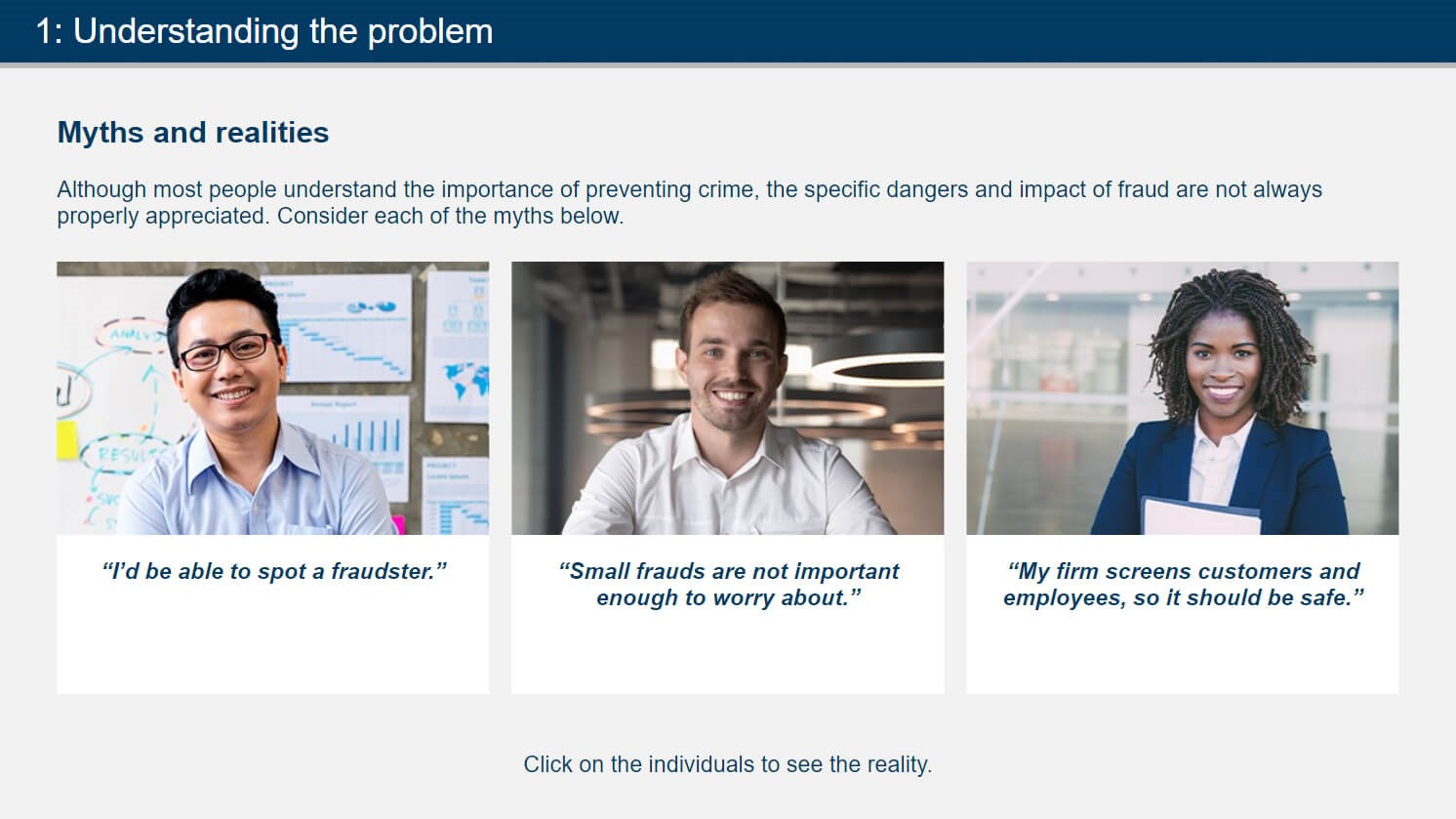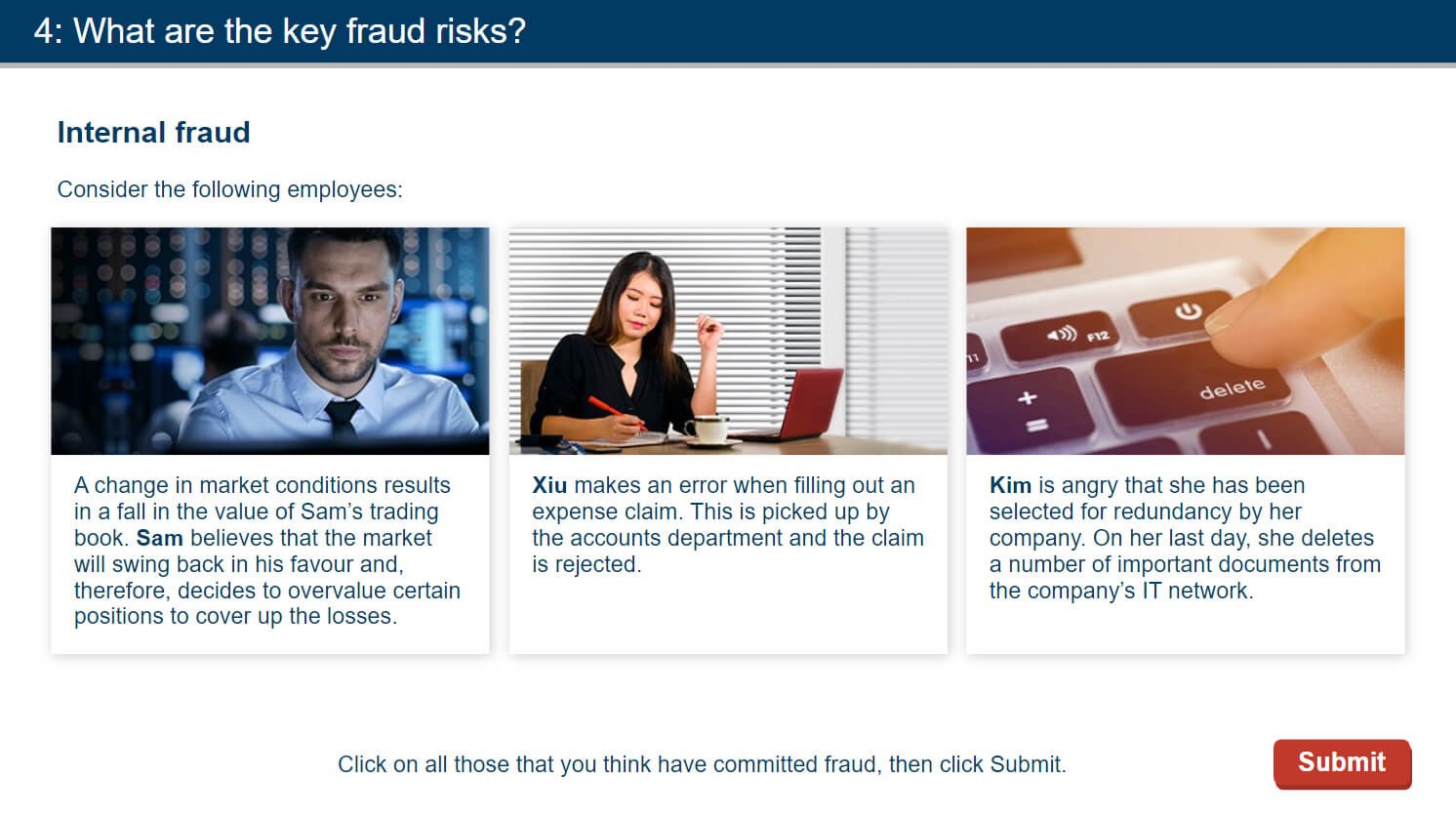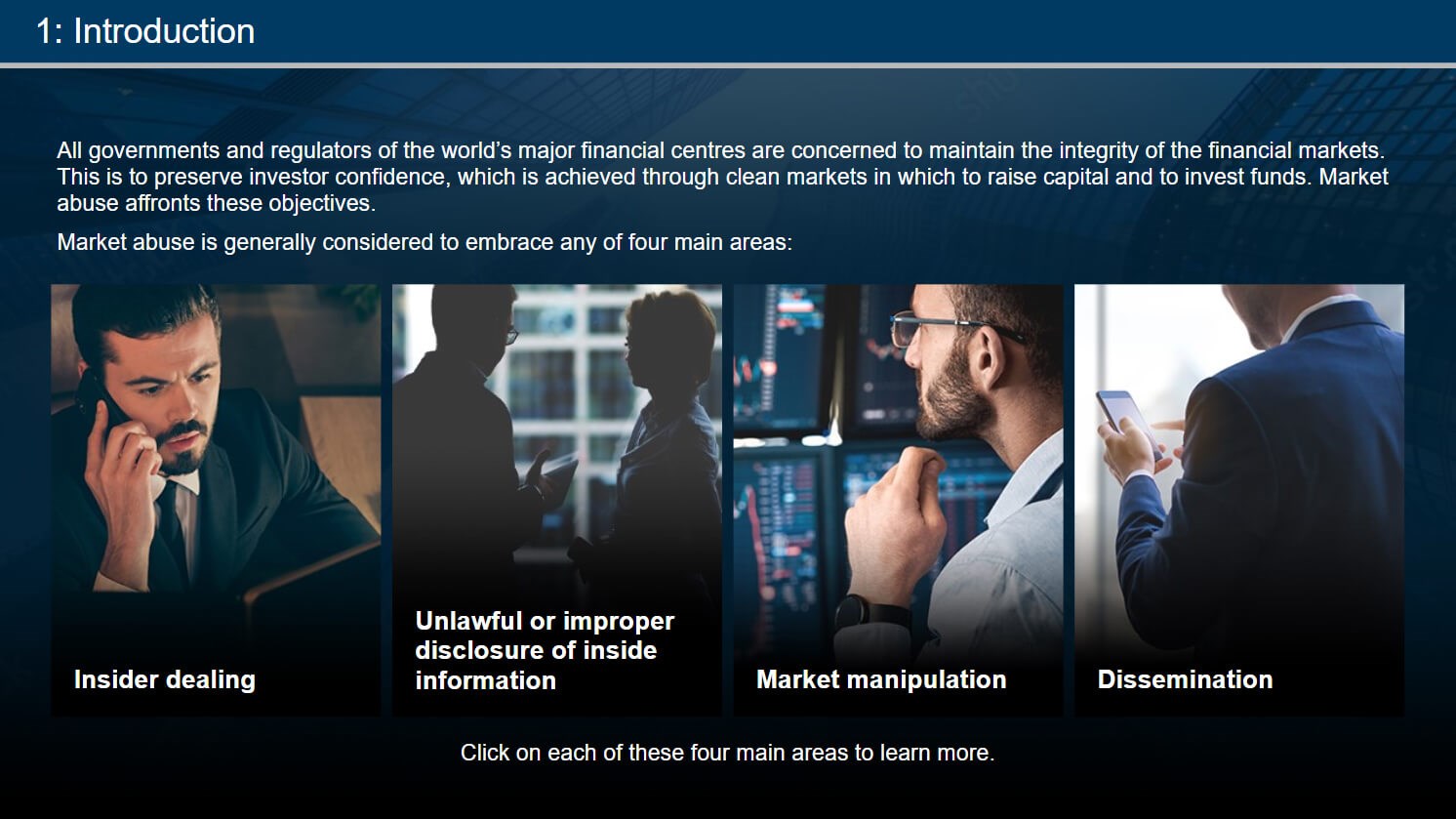Consumer Duty eLearning
Overview
The Consumer Duty is a key part of the Financial Conduct Authority’s strategy. The FCA wants to see a higher level of consumer protection in retail financial markets, where firms compete vigorously in consumers’ interests. In essence, the Duty requires firms to understand their customers’ needs and to support them so that they get good outcomes.
The Consumer Duty is comprised of:
- A new Consumer Principle that provides an overarching standard of conduct
- A new Conduct Rule
- Other cross‑cutting rules and outcomes that support the Consumer Principle by setting clear expectations for firms’ cultures and behaviours.
Most firms were required to implement the Consumer Duty by 31 July 2023.
This interactive eLearning module explains the Consumer Duty in detail and highlights the outcomes expected. It enables learners to understand the behaviours required to comply with the Consumer Duty, and the anticipated outcomes for consumers.
For those who are familiar with the Duty, our Consumer Duty: The New Normal eLearning module is also available, and has been designed to support firms with their ongoing Consumer Duty training.
This module and the end assessment can be tailored to incorporate client-specific content.
Course Details
- The introduction of the Consumer Duty - background and context
- Understanding the Duty
- Consumers defined
- Firms impacted
- What it means for firms
- What it means for staff
- Putting the Consumer Duty into practice
- The four expected outcomes
- Case study over the product life cycle
- Link to vulnerable customers
- Implementation timetable
- Assessment
Delivery
Our interactive learning is delivered online, so all you need is an internet-connected device – we’ll do the rest.
We handle every part of the set-up process, from customising your individual Learning Management System (LMS), loading staff data, setting up a deployment and reminder schedule and reporting on progress.
In addition, administrators can also have access to all of these tools too, giving you the flexibility to be involved as much or as little as you prefer.
eLearning Previews
See examples taken from a range of our eLearning courses in the gallery below.
















